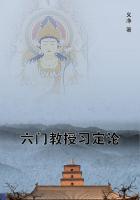OFFTO VIENNA
In this way Stanislaus went on until he was nearly fourteen years old and his brother Paul was approaching fifteen. Then the Lord John Kostka thought his boys had better continue their studies, not at home, but at a regular school. He picked out John Bilinski, a young man who had lately completed his college course, as tutor for them. He gave them a couple of servants, mounted them all on good horses, and sent them off six hundred miles or more on horseback to Vienna.
You may be sure Stanislaus enjoyed the long ride. It would be strange if he, a nobleman of the finest cavalry nation in the world, were not a good horseman. He loved the smell of the open fields, he loved the boisterous song of the mountain torrent. The hills and the plains were his home, for the hills and the plains were nearer to God than the houses of men.
In those days all travel was on foot or on horseback. The wealthy and noble rode, the poor footed it. Great highways cut Europe from end to end;though there were tracts in Stanislaus' country where the roadway was only the broad steppe, where the grasses waved and tossed like the sea, where men were few and their dwellings scattered far apart.
They crossed great rivers, they climbed the foothills of the Carpathian mountains. Many a night Paul and Stanislaus, with their people, slept under the stars. Many a wild, rough border town they passed. Many a great forest they penetrated, the home of the wild boar and the aurochs.
And the tar burners in the forests looked up from under their matted brows at the fair oval face of the Polish boy, and said:
"He is like a wild flower blown by the wind. He is like the violets that laugh in spring at the sun."
And the shaggy fighting-men of the frontier villages watched him ride through their streets, and thought:
"This is an angel. He looks toward heaven because he sees his Brothers there."
They crossed themselves piously as he passed. And some of the light and laughter of his face glowed 'for a moment in their dark lives, as a gloomy glen in the forest is brightened up by a darting ray of sunlight.
He was wonderful, but he was always a boy. He was glad to feel the good horse under him, to grip the Tartar saddle with his knees, to feel the air rush by his cheek.
Sometimes they met poor people staggering wearily afoot along the road. Often Stanislaus checked his horse and lightly dismounted.
"Get up, get up, old father!" he would cry. "My legs are stiff from the saddle. I want to walk."
And though a peasant might often be afraid to accept the favor from a noble, or be surly and churlish, the folk never were so with Stanislaus. Up climbed the old father into the saddle, and Stanislaus stepped out by his side.
"God give your grace long years!" said the thankful old man.
"Long years!" cried Stanislaus. I want more than that. I want eternity. I was born for greater things than long years."
And the old man would understand; for he was of the poor, and the poor know more of this longing for heaven than do the rich. But he looked almost with awe at this richly dressed noble boy who had learned even now to value life so justly. Then it was easy for Stanislaus to talk of heaven to the old man.
"Old father, in the barony of the Lord Jesus there is no poverty or old age or weariness. Nor is there any difference of rank there as here, for we shall all be great lords and castellans in heaven."
"Aye, but your grace will be a hetman surely in the army of the Lord Jesus," said the old man.
"Who knows!" cried Stanislaus. "I should love that dearly. Though the generals in His kingdom are not always from amongst the nobles. It may be that you will be hetman, and I a common soldier. But it is good to be even a common soldier with Him."
"I went against the Tartars in my youth," said the old man. "Perhaps we shall have a campaign against that dog-brother Lucifer, and Saint Michael and Saint Wenceslaus will lead us under the Lord Jesus; and our Lady of Yasna Gora will look on when we come back victorious!"
And so they talked on until it was time to set the old man down, and Stanislaus mounted again to catch up with his party, which had gone ahead.
"With God!" cried the old man.
"With God!" echoed Stanislaus. 'And if you go to heaven before me, father, do not forget to plead for me with the Lord Jesus and with His Mother."
Then he clattered along the road, and shortly came up with Bilinski and Paul.
Sometimes they came to districts infested by robbers, and waited to join themselves to some larger party for protection. Sometimes they made long stretches of many hours in the saddle, when the inns were far apart and they could get no food on the road. Sometimes they tarried a day or two in a little town to rest their horses.
But everywhere Stanislaus thought of God, and prayed, and when occasion offered spoke of holy things as only he could speak. Bilinski and Paul often laughed at him, for they were of a different stamp. But he did not mind their ridicule, and he bore them no grudge for it. And so, after. many days, they came at length to Vienna, on July 26, 1564.













